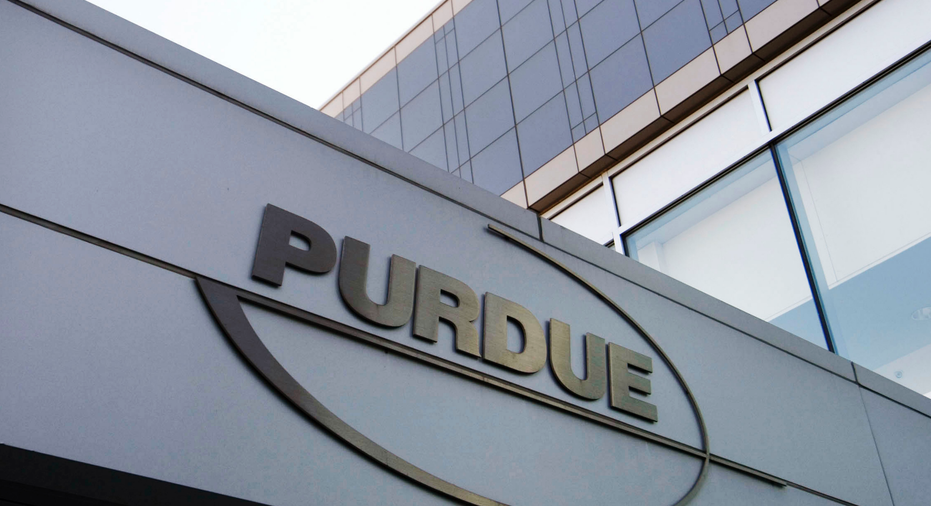Major opioid maker to pay for overdose-antidote development

A company whose prescription opioid marketing practices are being blamed for sparking the addiction and overdose crisis says it's helping to fund an effort to make a lower-cost overdose antidote.
OxyContin maker Purdue Pharma announced Wednesday that it's making a $3.4 million grant to Harm Reduction Therapeutics, a Pittsburgh-based nonprofit, to help develop a low-cost naloxone nasal spray.
The announcement comes as lawsuits from local governments blaming Purdue, based in Stamford, Connecticut, and other companies in the drug industry for using deceptive marketing practices to encourage heavy prescribing of the powerful and addictive painkillers. Last week, the number of lawsuits against the industry being overseen by a federal judge topped 1,000.
The Cleveland-based judge, Dan Polster, is pushing the industry to settle with the plaintiffs — mostly local governments and Native American tribes — and with state governments, most of which have sued in state court or are conducting a joint investigation. Hundreds of other local governments are also suing in state courts across the country.
The sides have had regular settlement discussions, but it's not clear when a deal might be struck in the case, which is complicated by the number of parties and questions on how to assign blame.
The U.S. Centers for Disease Control and Prevention estimated that drug overdoses killed a record 72,000 Americans last year, about 10 percent more than in 2016. The majority of the deaths involved opioids. But a growing number of them are from illicit synthetic drugs, including fentanyl, rather than prescription opioids such as OxyContin or Vicodin.
Governments are asking for changes in how opioids are marketed, and for help paying for treatment and the costs of ambulance runs, child welfare systems, jails and other expenses associated with the opioid crisis.
Polster is expected to rule in coming weeks on motions from drugmakers, distributors and pharmacies to dismiss the claims. Trials in some of the cases — being used to test issues common to many of them — are now scheduled to begin in September 2019.
Purdue agreed to pay $634 million in fines back in 2007 to settle charges that the company downplayed the risk of addiction and abuse of its blockbuster painkiller OxyContin starting in the 1990s.
It's facing similar accusations again.
Earlier this year, the privately held company stopped marketing OxyContin to doctors.
The naloxone grant is a way the company can show it's trying to help stem the damage done by opioids. "This grant is one example of the meaningful steps Purdue is taking to help address opioid abuse in our communities," Purdue President and CEO Craig Landau said in a statement.
Paul Hanly, one of the lead lawyers for plaintiffs in the lawsuits, said having more access to an overdose antidote would be good, but he questioned Purdue's motives.
"I think it's just a strategic move on their part to curry favor with the judge, and the public," he said.
Naloxone is seen as one major piece in overdose prevention strategies. Over the past several years, most states have eased access to the antidote for laypeople. First responders, drug users and others have taken to carrying naloxone to reverse overdoses. But the price of the drug has been a problem for state and local governments.
Pittsburgh-based Harm Reduction Therapeutics says it is trying to get its version to the market within two years.
"Combatting the ongoing crisis of opioid addiction will require innovative approaches to both prevention and medication-assisted treatment," Harm Reduction co-founder and CEO Michael Hufford said in a statement, "but it all starts with making sure lives are not lost from overdose."
___
Follow Mulvihill at http://www.twitter.com/geoffmulvihill



















